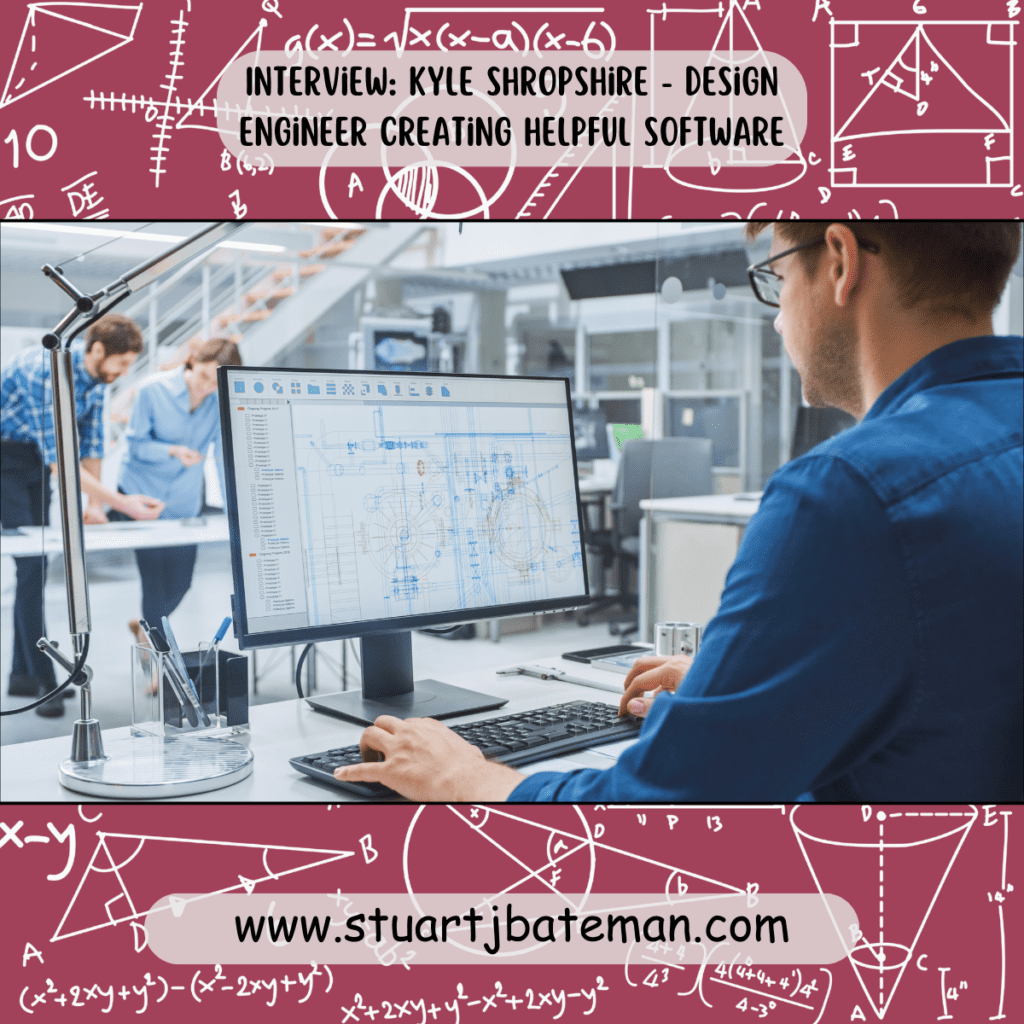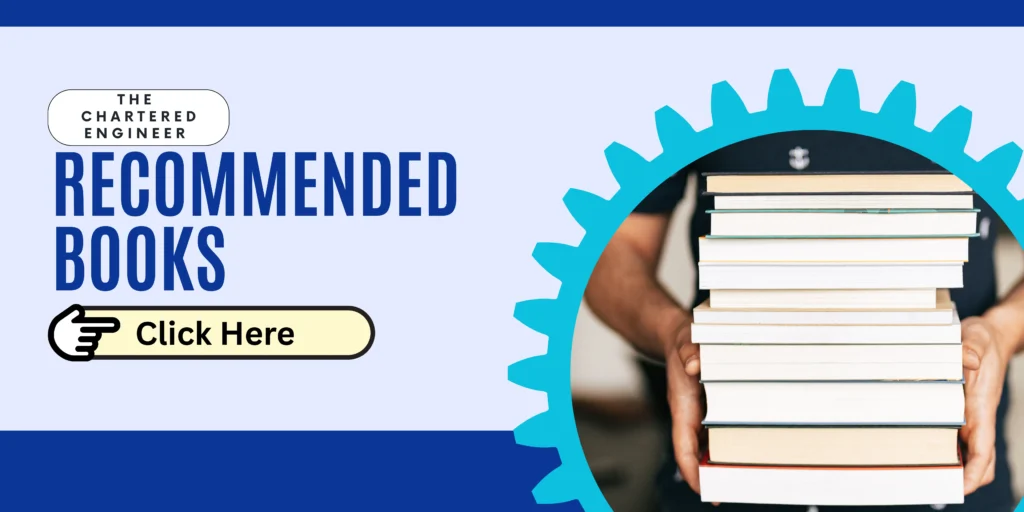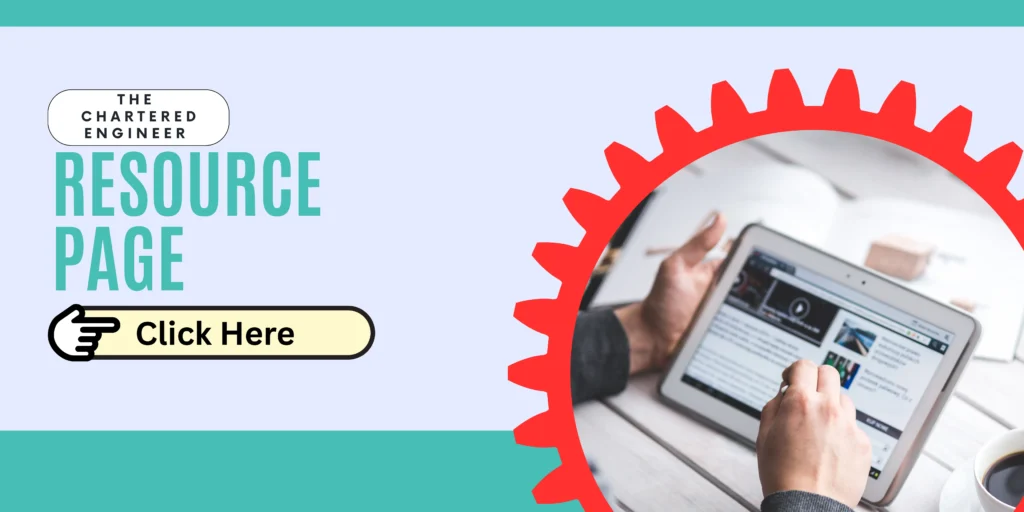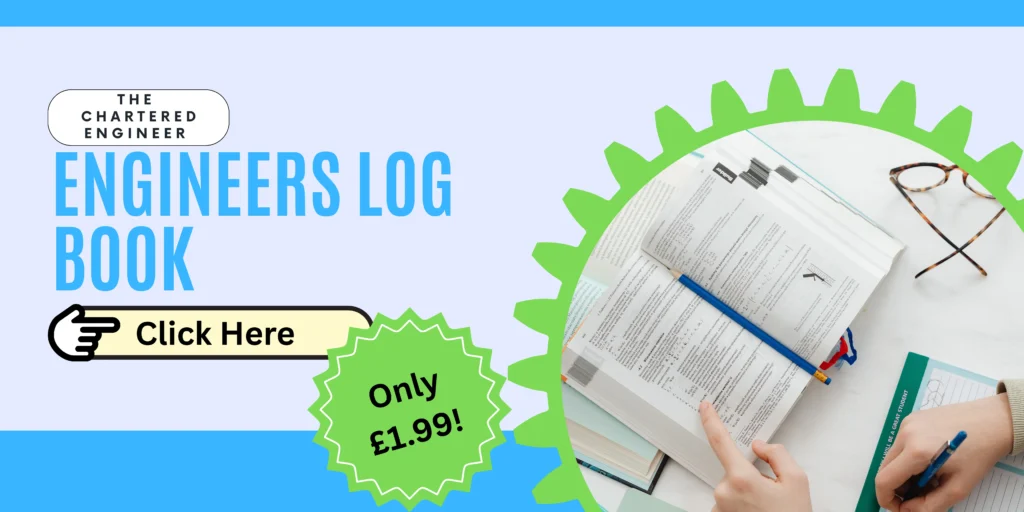Interview: Kyle Shropshire – Design engineer creating helpful software
The details are not the details. They make the design – Charles Eames

We have another new interview and this time I’ve manage to find a Design engineer willing to answer my questions, so we have Kyle Shropshire and you can find his LinkedIn profile here. Kyle apart from designing robotics for handling applications has also gone and designed a piece of software that creates a visual BoM (Bill of Materials) system for other engineers (and non-engineers to use), by using the General assemblies and the child drawings, Kyles software (called Drawing Navigator) sews those drawings together so you can move up or down the BoM with ease to quickly find the relating parts. To be fair, I’ve never seen a visual BoM system having only used the common ERP text based systems.
You can find out move at Kyle’s website here.
So, without delay let’s get this interview started!
Interview with a Design engineer.
1. Can you briefly describe your career path and what led you to choose your specific field of engineering?
Around age 3 I was “helping” my grandfather work on his oven. He gave me a screwdriver to play with even though my mother thought it was a bad idea. While they were talking I managed to disassemble enough of the oven that it never worked quite right again.
After disassembling every broken appliance I could get my hands on I got a job at an engine machine shop in high school and learned to build engines for race cars. This experience was very helpful since I was rebuilding my first vehicle, a 1984 K10, and it required a lot of work.
I went to Oklahoma State University for mechanical engineering from 2008 to 2012 to earn more about product design. During this time I took a class called “VBA for engineers” and it got me started programming. Sometimes at the expense of my other classes.
After graduating I worked on valve actuators and other equipment for the oil industry for almost six years. Including a miniaturized manual hydraulic power system for remote valves. During that time, around 2014, I was able to sell my first piece of custom software to a local business.
In 2018 I moved to start designing robotic welding equipment. The projects started to get bigger, a lot bigger, and handle parts upwards of 20,000 kg. It has been interesting designing robotic equipment that can fit in the front seat of my truck followed by a system that can pick up my entire truck. While this was going on I was continuing to sell custom software and ended up founding a software business in 2020 to combine some of the more interesting projects.
That brings me to today, and while I’m not sure what the next step is going to be, I am excited for whatever it is.
2. What key skills do you believe are essential for success in your engineering discipline, and how did you develop these skills?
- Always be curious and ask questions to learn.
- I ask questions, a lot of questions, and then after that I ask some more.
- Listening and observing
- I like to watch the parts I design being machined and assembled. Also a good time to ask questions about how to make better parts in the future.
- I will never forget the time an assembler came into my office and laid his allen key on my desk. He had to chop the end of it off because I hadn’t left enough room to actually install a bolt. Minor (but important) detail – so I got him a brand new replacement and now I pay more attention to tool clearances.
- Building up a library of useful knowledge – you can’t know everything but you can know where the answers are.
- I record notes on every project and have a database of useful notes.
3. What are some common challenges you face in your industry, and how do you approach solving them?
- Managing multiple projects at the same time.
- Using a Trello board for generic project progress and having a separate OneNote to-do list and journal for each project. Making project journals really helps when coming back to a project after waiting on something else to be completed.
- Antiquated processes – I find that the manufacturing industry has a lot of potential for modern improvements.
- I try to automate as much of the tedious parts as possible. (yay programming!)
4. Can you share an example of a complex project you managed or contributed to, and what were the critical factors in its success?
- I designed a piece of equipment that supports the frame of a mining vehicle and flips it upside down during welding.
- Making sure all the parts and bolts (over 20 critical joints) were sized correctly since this is the largest positioner – of this style – that the company has built.
- Designing three separate pieces of powered equipment to work in 0.1 Torr vacuum.
- Learning about a new environment that I had no previous experience in.
- Finding the right people to ask questions since this is a fairly niche application.
- Custom software development
- Learning the actual problems and not what people tell you is the problem. A lot of the time the “problems” are side-effects of the real issues.
5. How do you stay current with the latest developments and technologies in your field?
● Reading top news stories online and digging into the topics that interest me.
6. Did you have a mentor early in your career? How did their guidance impact your professional development?
● I have not had a defined single mentor. I believe that you can learn something from everyone and that’s another reason I bother people with so many questions.
● A lot of design knowledge has come from more experienced engineers making sure the parts I design actually work.
● Much practical guidance has come from people actually building this stuff so the parts can actually be machined and assembled.
7. What practical experiences or internships were most beneficial to you during your studies or early career?
● I interned at a business that put power inverters on the space station and learned that I cannot deal with Dallas traffic.
● Working on vehicles and generally taking stuff apart that was already broken (or sometimes broken when I was done) and seeing how it is made.
● Building software for people and learning how to find what the real problem is and not just what you are told the problem is.
8. How important are soft skills such as communication, teamwork, and leadership in your role, and how do you cultivate them?
● Extremely important. I have a lot of contact with other departments, customers, vendors, etc.
● I try to listen more than I talk and just be friendly in general.
9. What advice would you give to young engineers or engineering students who are just starting their careers?
● Listen to the people around you. Especially people in the shop areas, they have forgotten more about the practical side of building parts than you might ever know.
● Learn to program, VBA in Excel is a perfect place to start. Let computers do computer work.
● Network – knowing the right people might be the most helpful thing you can do for yourself.
● Be comfortable saying “I don’t know”. It is always better to learn the answers later than pretend you know more than you do.
10. What emerging trends or technologies do you think will have the biggest impact on the engineering field in the next five to ten years?
● I think that people will move towards more modern tools to stay competitive.
● Hybrid work will become much more common, even in the manufacturing industry.
Bonus question:
Are there any courses/books/videos/websites that you would recommend young engineers and students to look into when starting in your field?
● Keep your technical textbooks. I am always glad to have them when I have to relearn something I haven’t thought about in years.
● Whatever sources you need to start building something yourself.
Again I want to thank Kyle for contribution to this project with this interview, to create a body of knowledge of the journey’s existing engineers have taken and what they can share, it’s interesting that I intended not to change my questions and as a result each engineer has shown common practises but different routes to get to where they are today.
I look forward to reading the journey of our next engineer in their interview post to come!



What are your thoughts? Have I covered everything or is there more you know and would like to share?
I’m always learning and improving this site and my blogs, so please feel free to get in touch with me via LinkedIn or this site to discuss any topics I have covered.
If you’re having trouble finding ways to progress check out these sites filled with free learning tools:


Discover more from The Chartered Engineer
Subscribe to get the latest posts sent to your email.